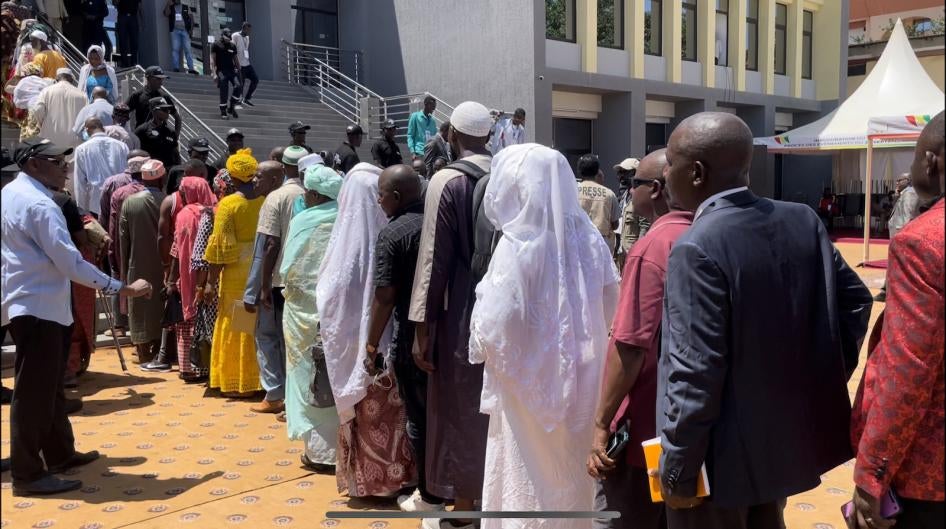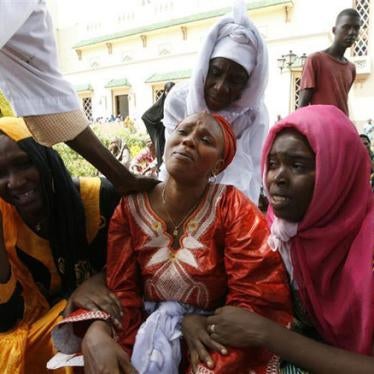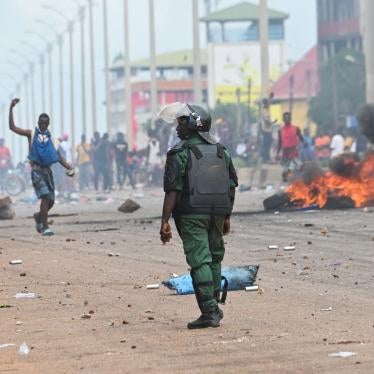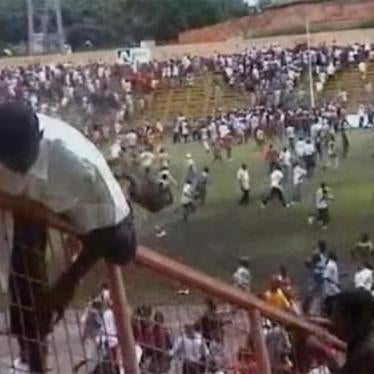Exactly thirteen years after Guinea’s security forces massacred peaceful protesters in a stadium, those accused of being responsible went on trial. Surviving victims and their families waited in a long and winding line to enter the courthouse.
On September 28, 2009, tens of thousands of people gathered in the stadium to protest a bid for the presidency by military ruler, then-president Moussa Dadis Camara. More than 150 people were killed, their bodies strewn across the field, crushed against half-opened gates, and draped over walls. More than 100 women were raped, some by multiple perpetrators.
It was mostly women in the second-floor victim observation area in the packed courtroom, mothers of the dead and survivors of the sexual assaults among them. Camara, along with some 10 other men, is now on trial.
“We have been waiting for this trial for 13 years. We wondered if the trial would be held,” one victim told us on Wednesday. Another said on the eve of the trial: “I have known too much trauma for 13 years. Today, I feel relieved. I want the perpetrators to answer for their actions and to be punished.”
I heard the breath of those next to me as the accused were led in, and I felt the enormity of what was transpiring. Watching a former president, former ministers, and several other accused face justice for their alleged role in atrocities was a first for Guinea.
I have spent nearly twenty years pressing for prosecutions of the world’s worst crimes, and the rarity of victims seeing high-level figures on trial, and particularly before a domestic court, is too well known to me.
As civil parties, victims play an important role in these proceedings. Victims’ lawyers argued for unrestricted coverage by media, including live broadcasting, “so that all the people of Guinea can know what happened.” The judges agreed.
In the courtroom, the crimes were read aloud. The judges asked each accused if he had a lawyer, ordering that lawyers be appointed for the two defendants who lacked them. Lawyers for the victims and accused requested more time to review the case file, and the judges announced a recess until October 4.
With that, history was made, although the real work has just begun. Justice for the atrocities in Guinea – and an example of credible domestic justice globally – demands that a trial not only occur, but that it fairly and genuinely holds perpetrators to account.









